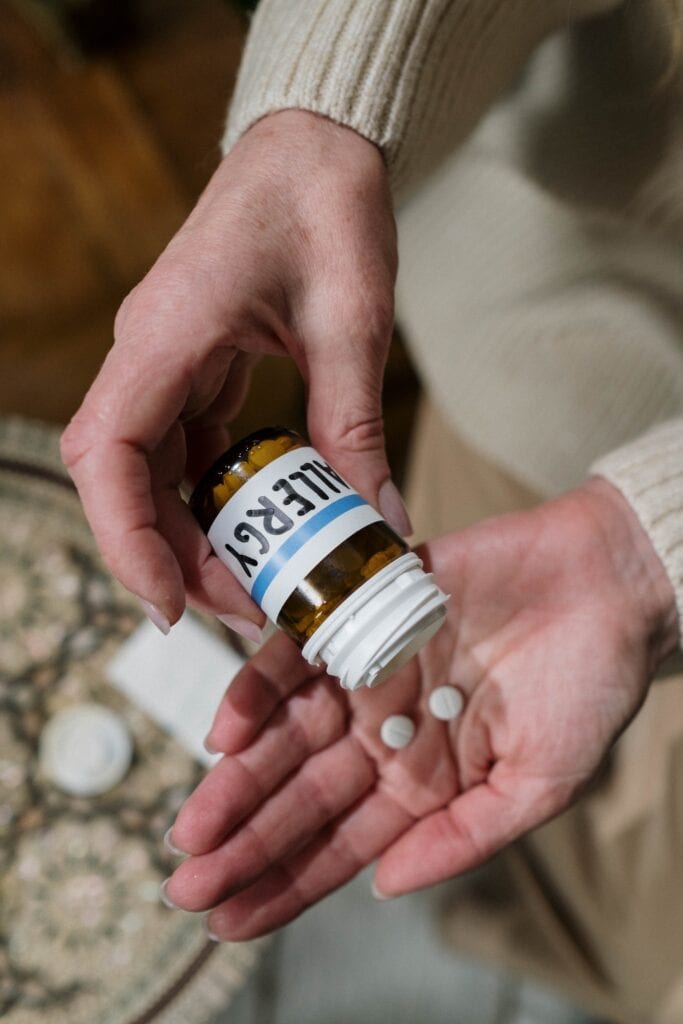Allergies and asthma are two very common conditions affecting millions of people and no matter in which part of the US you live in, allergy symptoms can vary from mild to severe. Among the most common symptoms we have: runny or stuffy nose, red eyes, or coughing. Getting the right diagnosis and treatment plan is very important to fight these unpleasant reactions and consulting a board-certified allergy specialist is the way to do it.
Allergists are experts who can perform allergy testing, give you an accurate diagnosis identifying the allergen that causes your symptoms and provide you with a treatment plan that can get the best results. If you decide to get tested for allergies and are wondering how long before allergy testing should you stop taking antihistamines, in this article we gathered the information you need to know on the subject.
What are allergies?
An allergic reaction occurs when our immune system identifies certain substances, allergens, as harmful and tries to fight them causing sneezing, itchiness or other symptoms. The most common types of allergies are related to food, pets, mold, drugs or pollen.
If you live in the Valley, you might have noticed that the most common Phoenix allergies are associated with springtime, when trees, grass and different weeds come back to life and the pollen count rises. Some allergies are only seasonal and others can occur all year round. To best manage your allergies, get yourself checked by a healthcare provider.
How does a skin prick test work?
The only way to determine what causes your allergic reactions is to have an allergy test done by your doctor. There can be many types of testing, and your doctor will choose the best option for you.
One of the most frequent testing with fast results is skin prick testing. This can identify allergens like pollen, pet dander, mold or dust. Testing is performed by placing on the skin some drops of the possible allergens mixed with a solution and then, the surface skin is pricked with a tiny needle. When the reaction is positive, your skin becomes red and itchy. Skin tests are less expensive and the results are immediately available, so your doctor might recommend this option. However, in case you can’t stop taking antihistamines before testing or suffer from certain skin conditions like eczema or psoriasis, your physician might recommend a blood test instead.
What are antihistamines?
Antihistamines are medications used to treat allergy symptoms. When you have an allergic reaction, your immune system reacts to the “foreign system” and releases histamine, an important chemical in our body which causes vessels to dilate and ultimately leads to allergy symptoms. Antihistamines can reduce the level of histamine released by your body and can relieve allergy symptoms, including hay fever.
If you have an allergy test scheduled, you must stop taking antihistamines 5-7 days before the test. Make sure to check with your doctor before getting tested for allergies when you are under any type of medication.
Why do you need to stop taking antihistamines before allergy testing?
As mentioned above, in case of an allergic reaction, your body releases histamine and in case of a skin test, your skin will be red when the histamine is released. Continue taking antihistamines can decrease or affect the response to allergy testing, for example producing a false-negative result.
Moreover, some types of medications can increase the severity of your symptoms when an allergy test is performed, so always check with your doctor for advice and remember to avoid taking antihistamines at least 5-7 days before allergy testing. Also, it is extremely important to let your doctor know if you are taking any other types of medication, for blood pressure, anxiety, heart problems or asthma.
Conclusion
The first step to getting better when suffering from allergy symptoms is to get tested for the allergen that causes your reactions. If you are taking any type of antihistamines, make sure to stop the treatment before an allergy test. Please discuss any type of medication you are taking with your allergist, as these might affect your test results.
Do not hesitate to get in touch if you have any questions or need help with your allergies. Our allergy associates are here to provide the best advice, testing and treatment plan. Call us today!



